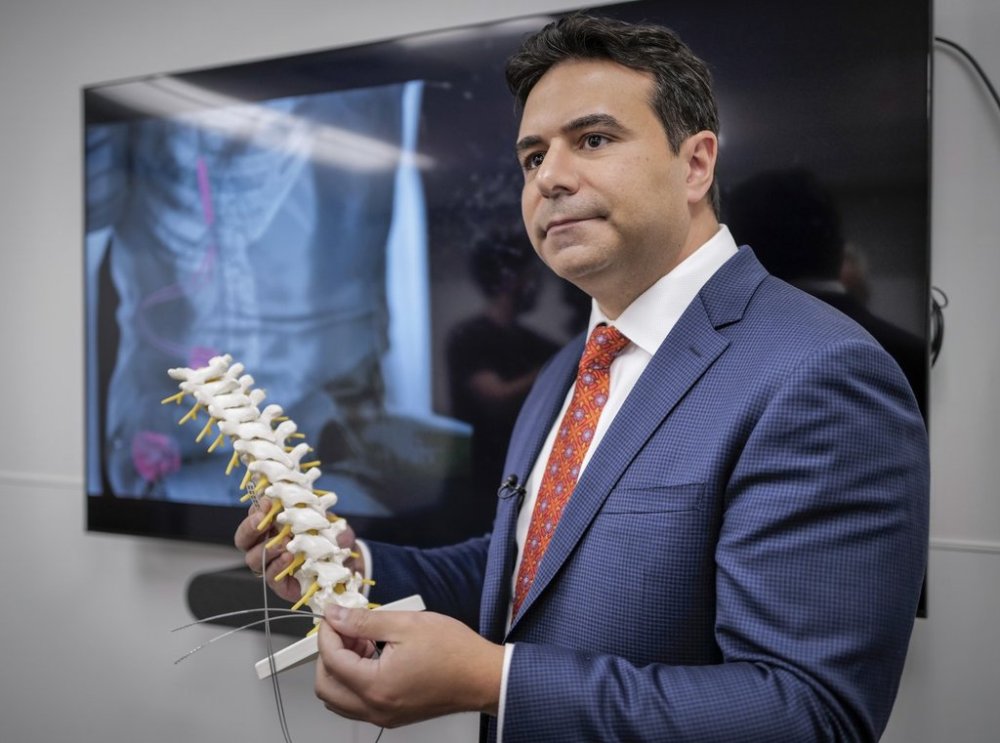Research studies say implant can regulate blood pressure in spinal cord injuries
Advertisement
Read this article for free:
or
Already have an account? Log in here »
We need your support!
Local journalism needs your support!
As we navigate through unprecedented times, our journalists are working harder than ever to bring you the latest local updates to keep you safe and informed.
Now, more than ever, we need your support.
Starting at $15.99 plus taxes every four weeks you can access your Brandon Sun online and full access to all content as it appears on our website.
Subscribe Nowor call circulation directly at (204) 727-0527.
Your pledge helps to ensure we provide the news that matters most to your community!
To continue reading, please subscribe:
Add Brandon Sun access to your Winnipeg Free Press subscription for only
$1 for the first 4 weeks*
*$1 will be added to your next bill. After your 4 weeks access is complete your rate will increase by $4.99 a X percent off the regular rate.
Read unlimited articles for free today:
or
Already have an account? Log in here »
CALGARY – Cody Krebs has undergone a series of challenges since a severe spinal cord injury three years ago.
The 32-year-old from Didsbury in central Alberta was hurt in a vehicle accident and requires a wheelchair.
He soon learned that the damage to his spinal cord also meant his brain could no longer control blood pressure in his body.

“Before the accident, I had no idea how volatile blood pressure can be. Just transferring from my bed to my chair almost knocked me out at times when my blood pressure would drop,” said Krebs.
“At other times during the day, my blood pressure would spike due to severe nerve pain, causing me to break out in a sweat and experience severe migraines.”
Krebs is part of ongoing research in Calgary based on a major discovery to stabilize blood pressure for people with spinal cord injuries.
Researchers say a new implant in individuals with spinal cord injuries can help restore blood pressure levels.
The University of Calgary Cumming School of Medicine is involved in research with two other universities that has led to a rare double publication in the journals Nature and Nature Medicine.
The research also includes École Polytechnique Fédérale de Lausanne, and University of Lausanne, in Switzerland, and Sint Maartenskliniek, Radboudumc, in the Netherlands.
The research describes the development of a targeted therapy to address blood pressure regulation in 14 participants across four clinical studies conducted in Canada, Switzerland, and the Netherlands.
Aaron Phillips, an associate dean with the university’s medical school, says with spinal cord injuries, the brain loses the ability to regulate blood pressure, leading to passing out and reduced energy, while high blood pressure can lead to a stroke.
“These really tell a journey of this battle that people with spinal cord injuries have with very low blood pressure and very high blood pressure and a treatment that we developed that treats both the lows and the highs,” Phillips said.
Phillips said the implant, similar to a cardiac pacemaker, delivers electrical stimulation and a regulation of blood pressure
“It works by electrically stimulating the spinal cord so the nervous system communicates with electricity. After a spinal cord injury, the spinal cord is disconnected from the brain and all the connections and control that it’s supposed to have.”
Dr. Fady Girgis, a neurosurgeon and associate professor in the departments of clinical neurosciences and radiology at the Calgary school, said the surgery is simple and the results are encouraging.
“It’s to be honest life changing for a lot of patients,” said Girgis.
“It is very debilitating to have significant swings in your blood pressure. People feel significantly better and it really improves their quality of life.”
Government approval has been given to initiate a trial of the therapy in approximately 20 neurorehabilitation and neurosurgical research centres across Canada, Europe and the United States.
This report by The Canadian Press was first published Sept. 17, 2025.
